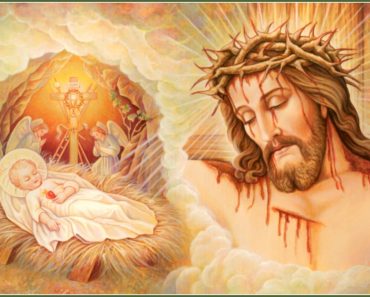
UNDERSTANDING LEADERSHIP AND ITS CRITICAL ROLE IN THE CHURCH
for KNUST CHAPLAINCY YOUTH COUNCIL
Delivered by Rev. Fr. Louis Cecilia Adu-Poku
@ Olivetti Monastery-Akwaboah
Introduction: some famous quotations
- Be careful the environment you choose for it will shape you; be careful the friends you choose for you will become like them. W. Clement Stone.
- Effective leadership is not about making speeches or being liked; leadership is defined by results not attributes. Peter Drucker
- Innovation distinguishes between a leader and a follower. Steve Jobs
- If your actions inspire others to dream more, learn more, do more and become more, you are a leader. John Quincy Adams
- A leader is one who knows the way, goes the way, and shows the way. John C Maxwell.
- A man who wants to lead the orchestra must turn his back on the crowd. Max Lucado.

There is a clear distinction between leadership in the Church and that which exist outside the church. For some time now I have asked myself whether politicians who are given portfolios as ministers really understand what they are expected to do. The same applies to religious leaders who ascribe or at times arrogate to themselves tiles such as ‘Rev. Minister.
In the church anybody who assumes any leadership position is called to service. This is because like the one we follow, we do not come to do our will but the will of the one who called us, cf. Jn. 4:34; 6: 38 Moreover on coming into the world he said he came not to be served to serve and give his life as a ransom for many. Mark 10:45
In the Old Testament, the qualification “servant” of God links all those who are called to exercise a mission for the sake of the Chosen People: Abraham (Gn 26:24), Isaac (Gn 24:14) Jacob (Ex 32:13; Ez 37:25), Joshua (Jos 24:29), David (2 Sam 7, 8, etc.). Prophets and priests, who have been entrusted with the task of forming the people in the faithful service of the Lord, are also servants. The Book of the Prophet Isaiah exalts, in the docility of the “suffering Servant”, a model of fidelity to God in the hope of redemption for the sins of the many (cf. Is 42:53). Some women also offer examples of fidelity, such as Queen Esther who, before interceding for the salvation of the Jews, addresses a prayer to God, calling herself many times “your servant” (Est 4:17).
Mary’s words at the Annunciation “I am the handmaid of the Lord; let it be to me according to your word” (Lk 1:38), indicate an attitude characteristic of Jewish piety. At the beginning of the Old Covenant, Moses, in response to the Lord’s call, proclaims himself his servant (cf. Ex 4:10; 14:31). With the coming of the New Covenant, Mary also responds to God with an act of free submission and conscious abandonment to his will, showing her complete availability to be the “handmaid of the Lord”.
RAISING UP NEW LEADERS-
One thing most of us are oblivious of or do not know is that, it is God who chooses leaders and allows human agents to assist in their mentoring. In Deut 31:14, it was God who directed Moses to call Joshua to come into the tent of meeting.
You cannot talk about leadership without mentioning Moses. His job description was cut for him. He was to lead the people of God from captivity to freedom, Ex 3:10. God calls him his servant (Num 12:7) while the biblical authors describe him as friend of God. That is anyone who serves God is also His friend.cf. Jn. 15:15.
Moses’ example
- He listened and appointed able men from all Israel and appointed them as heads over the people Ex 18:25
- He mentored them Ex 19:7 he called them and set before them all the words that the Lord had commanded him.
- He mentored Joshua among the lot- Deut 31:2-3, 7 ‘Joshua will cross before you as the Lord promised. He then summoned Joshua and said to him in the sight of all Israel ‘be strong and bold…
- Deut 31:14 God told Moses ‘call` Joshua and present yourself in the tent of meeting, so that I may commission him.
Jesus – New Moses’ example
Like Moses of old, Jesus job description was spelt out by the angel even before the pre-existent word of the Father became man. In Matt 1:21 the angel said ‘you shall call him Jesus-Yeshua because he is the one to save his people from their sins.
- At the commencement of his earthly ministry he chose 12 disciples and mentored them.
- He will appoint one as leader because all twelve could not be heads. One had to be ‘a prince’ among the lot, a kind of prime minister- that first of all the servants. cf. Is. 22:22, Matt 16:17-19
Factors that account for new leaders
This begins immediately one assumes office. Leaders should start training their successors immediately they assume office
- You were once not there – human beings are finite creatures
- You cannot do it alone – ‘multae manus levius faciunt’
- To ensure continuity – the group has to survive
- Docility – ability to be trained. There should exist in the group people who can be formed at any given time. These people should be docile
THE LEADER’S INNER LIFE – ‘As rain breaks through an ill–thatched roof, so lust breaks through an ill–trained mind’.
A.A leader should be courageous. Num 13:1-14:9. Joshua and Caleb pass the test of courage. S/he may face many kinds of obstacles from friends as well as enemies. They face criticisms about making decisions.
How can we be courageous?
- To do the will of God cf. Heb. 10:5-36
- When we know God is with us. Josh 1:5,9
It takes courage to
- speak out against abuses or wrongs Mk. 6:8 john to Herod Antipas, Archbishop Luwum against Idi Amin.
- do the right thing even if people criticise you.
- sack people who need to be sacked
- resist temptation (money, sex, bad influence etc)
B. A leader should be patient: David was anointed in I Sam 16:1-10 but he had to bid his time, he waited till the death of Saul. Many leaders are impatient and want everything right now.
- Noah waited 120 days before he saw a drop of rain
- Jacob worked 20 years for his spouses
- Joseph waited in prison for 2 years
- The disciples waited for the Spirit
Results of impatience
- Israel could not wait for Moses – Ex 32
- Saul – I Sam 15
Ps 27 and 37 encourage patience
C. A leader should be obedient-
D. A leader should be humble:
- Respect for those in authority I Sam 24:6. He refused to do any harm to Saul
- He respected women: he listened to Abigail whose husband was stingy.
- He accepted criticism. When fleeing from Absalom, Shemei ran towards him throwing stones and cursing him. He regained his throne he did him no harm. I Sam 16:3-14
- He repented: he was rebuked by Nathan after taking Uriah’s wife
E. A leader should be morally balanced. The most common temptation that leaders face is the compromise of their morality.
- Place limits on your curiosity.
- Fill your minds with wholesome things – Phil 4:8
- Don’t encourage immorality. Don’t postpone marriage to engage in pre-marital sex
- Create accountable relationships – get people who can advice you when you go wrong.
The ultimate test of a person’s leadership is how it transfers to the subsequent generations. If the change from one leader to another is not successful, then that leader was not completely successful. The eg. of Solomon I King 11-12 who could not pass onto Rehoboam what he had inherited from his father David.
References:
Danny McCain, Tough Test for Top Leaders
New Revised Standard Bible, Oxford Annotated






You must be logged in to post a comment.